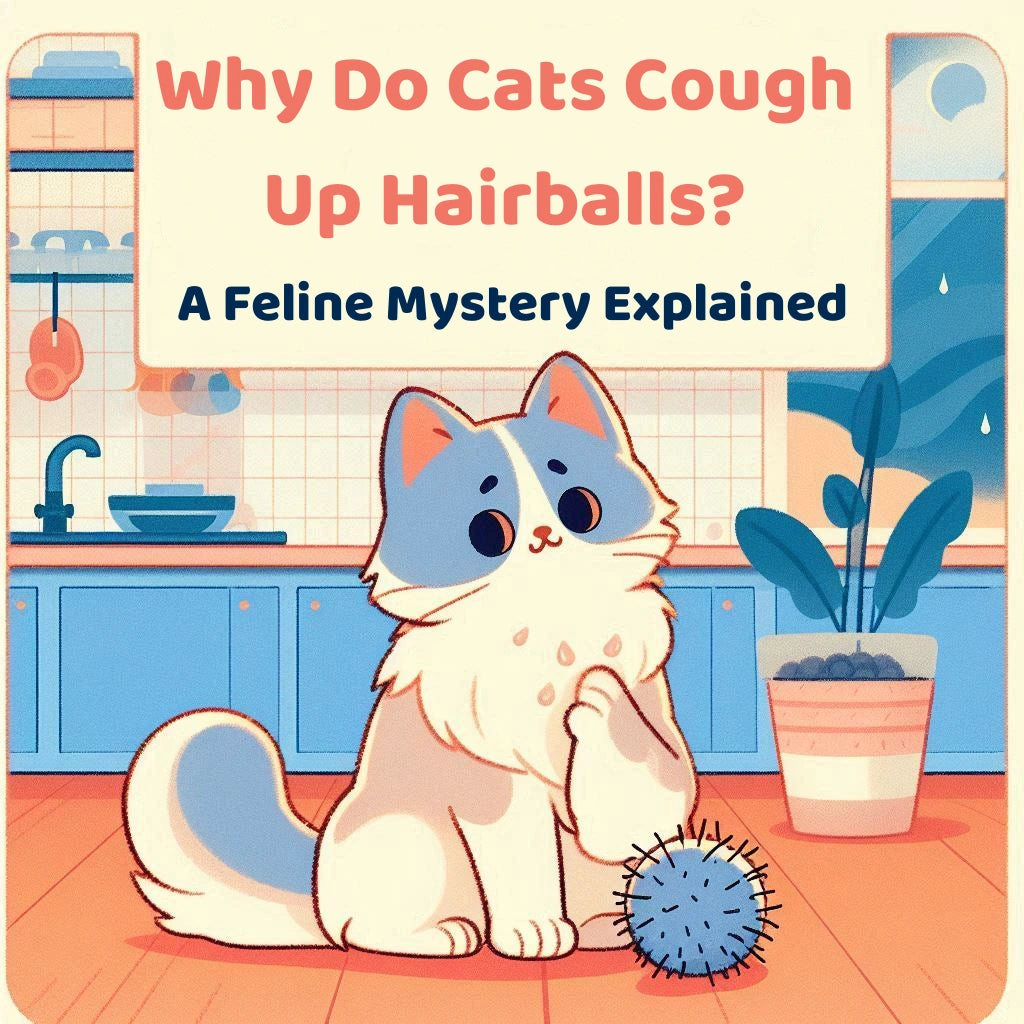Cats are curious creatures, and one of their most perplexing habits is coughing up hairballs. As cat owners, we've all experienced the unsettling sound of our beloved feline hacking away, only to find a hairball later. But why do cats produce these furry little surprises, and what can we do about them?
A. The Hairball Phenomenon
When it comes to grooming, cats are meticulous. Their rough tongues act like natural brushes, picking up loose fur and debris. Most of this fur passes through their digestive system without issue. However, some fur can accumulate in the stomach, forming a hairball.
So, why Hairballs Happen?
1. Natural Groomers: Cats spend a significant amount of time grooming themselves. This constant grooming means they ingest a lot of fur.
2. Shedding Seasons: During periods of heavy shedding, like spring and fall, cats are more likely to ingest excess fur, leading to more hairballs.
3. Digestive Tract: While most ingested fur passes through their digestive tract, some can remain and form a hairball that the cat eventually coughs up.
B. Symptoms of Hairballs
Hairballs are usually harmless, but they can sometimes cause discomfort or even health issues. Here are some signs your cat might have a hairball:
- Frequent hacking or gagging
- Vomiting hairballs
- Constipation or diarrhea
- Loss of appetite
If your cat shows any severe symptoms, like frequent vomiting or a swollen abdomen, consult your vet immediately.
C. Preventing Hairballs
While you can't completely eliminate hairballs, there are several steps you can take to reduce their frequency:
1. Regular Grooming: Brush your cat frequently to remove loose fur, especially during shedding seasons.
2. Special Diet: Some cat foods are designed to reduce shedding and support digestive health, helping fur pass through their system more efficiently.
3. Hairball Remedies: There are various hairball control products, like treats and gels, that can help minimize hairball formation.
And there has a fun fact I want to share with your guys : Why Cats Love Grooming?
Grooming isn't just about cleanliness for cats. It's also a way for them to relax and bond with their owners. When your cat licks you, it's showing affection and trust.
Understanding why cats cough up hairballs helps us take better care of our feline friends. By taking preventive measures, you can keep your cat healthy and reduce the frequency of hairballs. Regular grooming, a suitable diet, and the right hairball remedies can make a significant difference.
So, the next time you hear that familiar hacking sound, remember that it's just a part of being a cat owner. Embrace it, take preventive steps, and your furry friend will thank you for it!
Why Do Cats Cough Up Hairballs? A Feline Mystery Explained


Share and get 15% off!
Simply share this product on one of the following social networks and you will unlock 15% off!